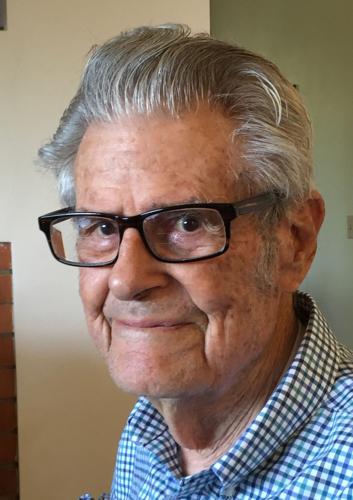Cornelius Steelink, a retired professor of chemistry at the University of Arizona and lifelong advocate for civil and individual rights, died Friday after surgery to combat congestive heart failure. He was 94.
Steelink, along with his late wife, Jean, moved to Tucson in 1957, where he began a five-decade teaching career at the UA and they both continued to crusade for integration of public accommodations and defense of civil liberties.
They helped found the Arizona chapter of the American Civil Liberties Union and became busy very quickly, said Barbara Elfbrandt.
Elfbrandt was a young teacher at the time. She and her late husband, Vern, were faced with having to sign a loyalty oath after the Legislature passed the Arizona Communist Control Act.
The Elfbrandts were not communists, but objected to the oath on principle because of their Quaker faith. They also worried it would affect their ability to join other organizations, such as the ACLU and the NAACP.
Tucson attorney Ed Morgan, now Elfbrandt’s husband, agreed to take the case and the ACLU raised $170 for the filing fees and continued to support them all the way to the U.S. Supreme Court, which eventually declared the law unconstitutional. It was one of several landmark cases initiated by the Arizona ACLU, including the Miranda ruling, which outlined the rights of those facing arrest.
Steelink inherited his ideals from his father, Nicolaas Steelink, a Dutch immigrant famous for his soccer skills and his labor organizing. A member of the Industrial Workers of the World, the elder Steelink was jailed for two years in California for being a “criminal syndicalist.”
“Corny” Steelink, as he was known by all, never served jail time for his beliefs, but he was placed in a conscientious objector’s camp for refusing to serve in World War II. There he was put to work surveying and building roads and trails, and fighting forest fires, said his daughter Laurie Steelink.
“He was really very courageous,” Laurie Steelink said. “I’ve always been very proud to say that my father was a conscientious objector. He was a pacifist. He didn’t believe in killing people.”
“He has enabled me to have some courage too.”
After the war, Corny Steelink continued his activism as he pursued his degrees in chemistry at the University of Southern California and UCLA.
He met his late wife, Jean, on the picket line. At the time, they were protesting a pool in Los Angeles that wouldn’t admit African-Americans, said his daughter.
The couple moved to Tucson when Corny was offered a job as professor of organic chemistry.
The department’s primary focus then was on teaching, said Roger Caldwell, one of Steelink’s graduate students, but Steelink also became known for his research into the chemical ingredients of natural products.
He was an internationally recognized expert on soil humic acid, said Caldwell. He also started the toxicology program at the UA.
He was a leader in faculty politics, elected at different times as president of the UA chapter of American Association of University and president of the Faculty Senate, where he led campaigns for higher pay and against nuclear arms testing.
Steelink also advised local governments on chemical processes, serving time on the city of Tucson’s Water Advisory Committee.
Known for having a light-hearted approach to argument, Steelink once assured the city council that it could safely treat the surface water it was importing in the Central Arizona Project canal by comparing it to the Rhine River, which drains waste across Europe before arriving in the Netherlands, where the Dutch make very tasty beer from it.
“Corny had this uncanny ability to make everyone feel comfortable. He was just a kind, giving man, and he was the voice for people who didn’t have voices,” said son-in-law Frank Wingfield.
Daughter Kaye Wingfield, a teacher at Peter Howell Elementary School, said her father was never one to insist that other people share his views or his passion for righting wrongs.
“It kind of shaped how I approach my lessons in class — that there are all kinds of perspectives. You don’t have to agree, but you have to understand.”
“He had so many causes that I don’t know if I could remember them all,” said Steelink’s wife, Joanne Whittington Steelink — “any cause that had to do with somebody who needed help.”
After Jean Steelink died in 2001, Corny looked up his old friend, Joanne. He had been best man at her wedding to his USC grad school buddy, Trevellyan Whittington, who had also died.
They married in November 2003 and divided their time between Tucson and Joanne’s house in Pasadena until the past year when heart disease slowed him down. “I have always admired him, even from the younger days,” said Joanne.
“If I said something unkind about somebody, he would listen very quietly and then point out something that was good about them,” she said.
The family is planning a memorial service in Tucson in January.








